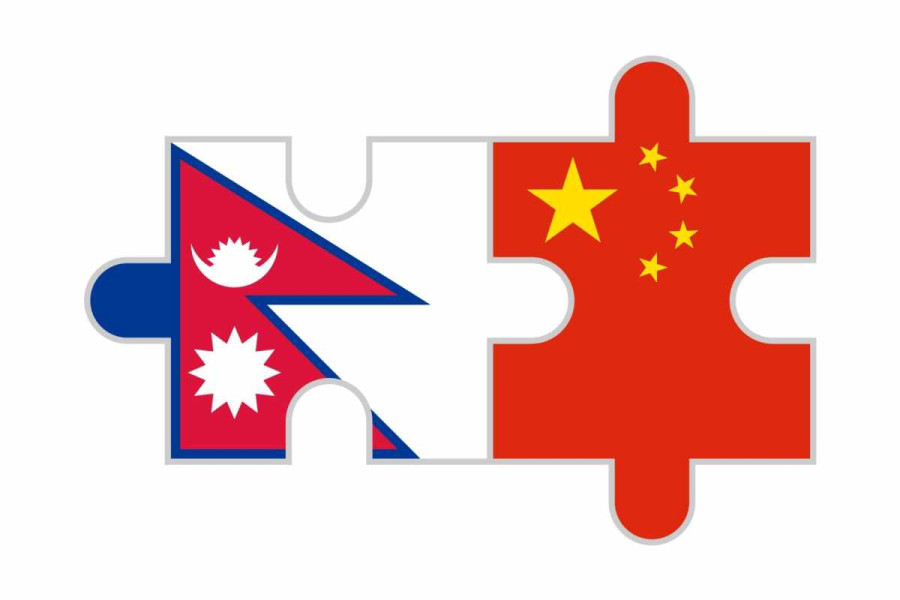Columns
The disconnect with China
How it is getting increasingly harder for Nepal to talk to and deal with its northern neighbour.
Biswas Baral
Mark Zuckerberg takes some pride in his Mandarin, having spent years trying to hone perhaps the toughest language in the world. Yet when he speaks in the tongue, he still makes oodles of mistakes. The Meta CEO reckoned the knowledge of Mandarin would help him better understand China and Chinese culture—with the added lure of pulling in over a billion potential customers. As he grappled with the tonal language, he must have noted its endless nuances too. In an oft-cited example, put a smidgen of emphasis on the Mandarin word for ‘mother’ and it becomes a ‘horse’.
These linguistic nuances reflect the larger culture and, by extension, the country’s dealings with the rest of the world. Countless Nepali diplomats, over the decades, have tried in vain to make sense of their Chinese counterparts. Madhu Raman Acharya, the ex-diplomat, offered a pithy example of Chinese evasiveness at a recent public event. “You ask them: ‘Have you been to Nepal?’ and the answer comes, ‘Yes… I would like to go there someday’.” Another old China hand adds: “Chinese diplomats have at least 10 varieties of ‘Yes’, which can often mean a ‘No’.”
It’s not just that most Nepali leaders and diplomats cannot converse with the Chinese in their native tongue. Increasingly, no matter how many ice-breaking tea ceremonies they attend in Chengdu or Chongqing, it is getting harder to fathom the mindset of their Chinese interlocutors.
As I wrote in my previous column, a reason Prime Minister Pushpa Kamal Dahal wants to keep a safe distance from China is his newfound realisation that to prolong his stay in power, it is New Delhi he must humour, not Beijing. But there is also another factor at play: The complexity of doing business with an assertive China under Xi Jinping.
Dragon’s way or highway
The Chinese in Nepal were livid with the ban on TikTok, the Chinese-owned, Singapore-based app that is all the rage among youngsters. They lodged a formal complaint with the government that the app was being banned for ‘geopolitical reasons’ and Beijing would not look at it kindly. Prime Minister Dahal struggled to explain that the TikTok decision had nothing to do with geopolitics. The ban’s questionable justification aside, official Chinese protests these days are not limited to decisions of the Nepal government and its agencies.
If a Nepali news outlet publishes something that even remotely smacks of support for Taiwan or Tibet, the Chinese quickly take it up with Kathmandu. So Rastriya Samachar Samiti and The Rising Nepal have stopped printing anything the Chinese may find problematic. The northern neighbour now wants the (often easily cowed) Nepali state to impose similar censorship on private media.
One argument about the rather clumsy Chinese engagements with smaller South Asian countries like Nepal and Bangladesh is that it is a relatively new entrant in India’s old backyard. China will get better with time. But could it be that as President Xi tightens his grip and as the country’s diplomacy adds muscle, Beijing would be even more inclined to flex those bulging biceps than employ the old Confucian charm in the neighbourhood?
So Chinese Ambassador Chen Song openly declares that Nepal is unfortunate to have neighbours like India. When the foreign ministry summons Chen for an explanation, he shrugs: He was just stating a plain truth. Talk to senior government officials and diplomats, and they seem to be at a loss for how to deal with such Chinese insouciance.
But isn’t China inviting thousands of Nepali politicians, journalists, academics and entrepreneurs to come visit it every year, thus helping us better understand them? And ditto with the legions of Chinese officials now touching down on Kathmandu? But then, the optics of these visits aside, what is their outcome?
The art of holding ground
When I recently sat down with a CPN-UML leader who had just come back from an extended China trip, I found him rather despondent. He accepted that there was a natural affinity between the Nepali and Chinese communist parties—but that, he said, goes only so far. The UML leader was miffed that the Chinese gave him short shrift whenever he tried to raise matters of Nepal’s interest, even as they enthusiastically spoke of Kathmandu’s need to support this or that initiative of their own.
Of course, avoiding China is no solution. It is one of our only two neighbours, and we cannot wish away the economic and military behemoth. If anything, the level of engagement between the two countries must go up across all platforms in order to boost mutual understanding, as hard as the task may be. But how do we deal with the next-door giant without compromising our national interest?
A better understanding of their negotiating style would help. In any negotiation, they like to set the agenda, put the other side on the defensive from the outset. As the low-ranking Chinese interlocutors don’t have the power to take vital decisions, they rarely budge from the line handed from above.
As former Indian foreign secretary Vijay Gokhale, a fluent Mandarin speaker himself, writes, “A key to getting the Chinese negotiators to take serious notice of your concerns is to keep them from choreographing the negotiation. Challenge all points of their interest and raise all issues of your own even if they are not on the agenda. If this frustrates or irritates them, that helps limit their control of the negotiation.”
Much the same is perhaps true for engagement of any kind with China.
To restate a cliché, Nepal should not allow its soil to be used against China. It should also always be open to doing business based on the principle of sovereign equality. This much, both the sets of leaders and bureaucrats understand. But we should resist coercion of any kind.
In dealing with Xi’s China, Nepal cannot betray any weakness. It has shown some spunk, for example, in cancelling the West Seti hydro project (after various Chinese companies endlessly sat on it), and by resisting Chinese pressure to sign up for little-understood concepts like the Global Security Initiative. Such a case-by-case approach is best suited to transacting with a rather opaque interlocutor. In the face of uncertainty, building a political consensus on vital foreign policy issues would be another unambiguous show of national strength.
Zuckerberg has long since discovered that deep knowledge of a distant culture is of little commercial use. Endlessly frustrated by his private company’s failure to penetrate the Middle country, Zuckerberg has given up on China. Nepal, as a sovereign state, has no such luxury.




 8.43°C Kathmandu
8.43°C Kathmandu















